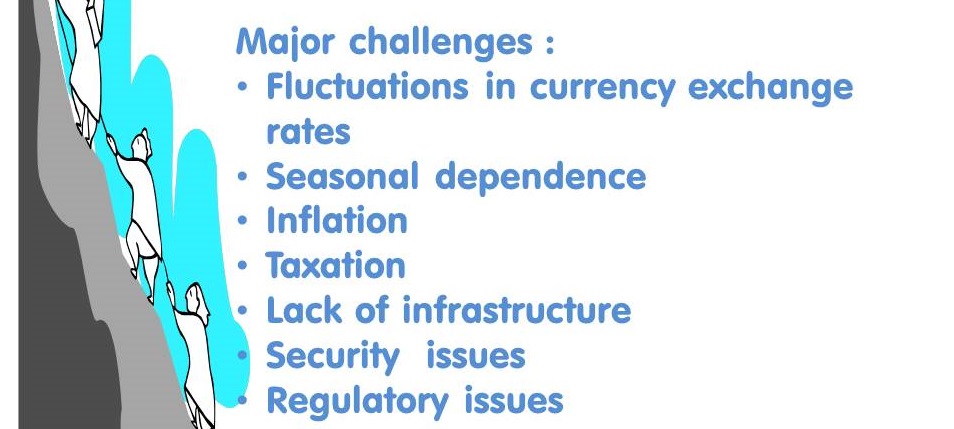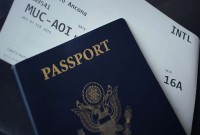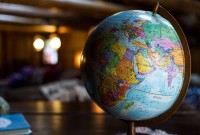- Home
- Business Processes
- Industry Knowledge
- Aerospace Industry
- Automotive Industry
- Banking Domain
- BFSI Industry
- Consumer/ FMCG Industry
- Chemicals Industry
- Engineering & Construction
- Energy Industry
- Education Domain
- Finance Domain
- Hospitality Domain
- Healthcare Industry
- Insurance Domain
- Retail Industry
- Travel and Tourism Domain
- Telecom Industry
- Leadership Skills
- eLearning
- Home
- Domain Knowledge
- Travel and Tourism Domain
- Challenges in the Tourism Industry
Challenges in the Tourism Industry
Top challenges confronting tourism are taxation, travel marketing, infrastructure issues, and security and cross border regulations. Too many tourism destinations are not prepared for visitors. Tourists or travelers can at times deem travel marketing to be exaggerated. Another major challenge that the tourism industry faces is the fluctuating rates and cost inflation. New challenges seem to arise quickly impacting the industry as a whole.
What is coming to tourism? What will the tourist sector have in the coming years? It is the question that all professionals in the travel industry would like to have answered. Let’s look at some of the challenges faced by the travel industry and what the future looks like.
Impact of Coronavirus on Global Tourism
The coronavirus health crisis has hit the global economy hard and the tourism industry most of all. The World Tourism Organization (WTO) is expecting a drop in tourism revenue of 300 to 500 billion dollars in 2020, up to one-third of the 1,500 billion generated in 2019. Although the coronavirus crisis has short-term destructive effects on the tourism industry, it is challenging the practices of the tourism industry and is drawing attention to a succession of issues like poor risk management in the travel industry, viral globalization, and travel of diseases with tourists to cross borders. This is also an opportunity to rethink the tourism industry from a critical perspective. There are several areas for potential transformation and move towards responsible, sustainable, and socially innovative tourism.
Cost of Vacation & Inflation
One of the major challenges that the tourism industry faces is the fluctuations in currency exchange rates. The inability to know the value of a currency means that long-range tourism prices are especially hard to predict and the fallout from this monetary instability is already impacting multiple tourism support systems. The tourism industry is seasonal in nature and does not guarantee round the year flow of income which hampers the overall business setup.
Inflation is rising at an alarming and restaurants have had to raise prices or lower their service. Transportation companies have been hard hit. The airline industry is especially vulnerable. Airlines depend on both the food industry and the fuel industry. Already on the margin, airlines can do nothing more than cut services and raise prices. The result of such a situation keeps the leisure travelers stay away from expensive vacations which further hits the overall tourism sector.
Tax and Tourism
The tourism industry is a heavily taxed sector in some countries. Various taxes are levied across the entire industry right from tour operators, transporters, and airline industry to hotels and these include service tax, luxury tax, tax on transportation, tax on aviation fuel, and various taxes on transportation. In addition, these tax rates tend to vary across different states in the country. All these taxes are finally passed on to the travelers in one or the other way thus hampering its growth.

Risk & Security of Tourists
Safety will always be a paramount consideration for the traveler. Security has been a major problem as well for the growth of tourism for a number of years. Improper law and order, terrorist attacks, political unrest adversely affect the sentiments of foreign tourists. Despite the economic growth, tourism is vulnerable to natural and man-made crises, unexpected events that affect traveler confidence in a tourist destination, whether the risk is real or perceived.
Already the events of the twenty-first century have tended to focus attention on security risks to travel associated with terrorism and political groups. Tourism is also affected also by natural disasters such as pandemics, tsunami, earthquakes, floods, volcanoes, and avalanches. A crisis can be defined as any unexpected event that affects traveler confidence in a destination and interferes with the ability to operate normally.
Regulatory & Border Issues
Regulatory issues like visa procedures are seen as hindrances. Difficult visa processes keep the tourists away from some destinations. A number of projects in the tourism infrastructure segment and in the hotel industry are delayed due to non-attainment of licenses and approvals on time.
However, in order to capitalize on the benefits of the tourism sector, the government should aim at creating proper infrastructure, speedy clearances, and make effective policies to regulate the tourism sector and to gain the confidence of foreign tourists.
Technological Drivers of Change
Technology is fast penetrating into all aspects of life. Tourism futures will be determined and facilitated by technology. The Internet has leveled the playing field for tourism marketing. A good website means that small remote destinations can compete equally with the giants of tourism. The fusion of information and communication technologies will allow tourism enterprises to become more efficient and competitive.
Skilled Human Resources
The challenges facing the tourism sector will only be met successfully only by a well-educated, well-trained, bright, energetic, multilingual, and entrepreneurial workforce who understands the nature of tourism and have professional training. High quality of professional human resources in tourism will allow enterprises to gain a competitive edge and deliver added value with their service.
A high-quality tourism workforce can only be achieved through high standards of contemporary tourism education and training. Tourism education and training involve the communication of knowledge, concepts, and techniques that are specific to the field of tourism, but which draw upon the core disciplines and themes of areas such as geography, finance, and marketing.
The futures of tourism are exciting and tourism is a difficult sector to predict. Each of the drivers of the future that we have outlined above is influential in its own right, but when combined they deliver a powerful force shaping the futures of tourism.
Related Links
You May Also Like
-
How does Tourism Industry impact a country? The impact of the tourism industry can be classified into the social & cultural impact, economic impact, and environmental impact. Social & cultural impact signifies the impact which it creates in terms of social changes. The economic impact can be quantified in terms of monetary benefits and overall economic development of the society. Environmental impact refers to the impact on nature and the surrounding areas.
-
Overview of Hospitality Industry
Hospitality is the act of kindness in welcoming and looking after the basic needs of customers. The hospitality industry is a broad group of businesses that provide services to customers. The industry can be broken down into three basic areas: accommodations, food and beverage, and travel and tourism. Hospitality is actually one facet of the service industry. It primarily involves addressing customer satisfaction and catering to the needs of guests.
-
Economic Impact of Tourism Industry
The tourism industry has contributed to the economic growth of a country through factors like industrialization, education, advanced technology, a higher number of qualified professionals, opening up of foreign markets, liberal trade policies, and better advertising and strategic marketing. The income generated helps the national balance of payments, earning revenue through direct taxation, as well as from indirect taxes on goods and services purchased by the tourists.
-
Components of Tourism Industry
The tourism sector is a range of businesses and organizations involved in delivering the tourism product. All the elements of tourism are related and interact; in essence, the tourism industry is a system of customers and suppliers who demand and supply tourism products and services. In relation to tourism, very often you will come across terms like tourism products and services. These components of travel and tourism can be broadly divided into six key areas highlighted below.
-
Environmental Impact of Tourism Industry
The environment is the surrounding atmosphere or condition for existence. The impact of tourism on the environment is both positive and negative. This article considers the major issue of the consequences of tourism for the environment. This is a complex area as, whilst tourism is dependent upon environmental quality to attract and support visitors, it also can have a detrimental effect upon those very environments – and their climate.
-
Challenges in the Tourism Industry
Top challenges confronting tourism are taxation, travel marketing, infrastructure issues, and security and cross border regulations. Too many tourism destinations are not prepared for visitors. Tourists or travelers can at times deem travel marketing to be exaggerated. Another major challenge that the tourism industry faces is the fluctuating rates and cost inflation. New challenges seem to arise quickly impacting the industry as a whole.
-
Social & Cultural Impact of Tourism
Tourism may have different effects on the social and cultural aspects of life in a particular region depending on the strengths of the region. The effect can be positive or negative. Tours also focus on unique natural or geographical features like the coastline, islands, mountains, health resorts, countryside, etc. At such locations, the provision of tourist services and the pressure of tourists are bound to have impacts on the environment, economy, and local social practices and on the people.
-
Wealthy people have always traveled to distant parts of the world, to see great buildings, works of art, learn new languages, and experience new cultures, and to taste different cuisines. There has been an up-trend in tourism over the last few decades and now national or international travel for short breaks is very common. Tourists have a wide range of budgets and tastes, and a wide variety of resorts and hotels have been developed to cater for them.
-
We all travel and have been a tourist, perhaps many times in our life. Tourism and tourist are so common words that they find mention in newspapers and magazines almost on a daily basis. In spite of its popularity, have you ever deliberated what the definition of travel and tourism is? What components constitute the tourism industry? Who qualifies to be called a tourist? Well, this article attempts to explore the words "travel”, “tourism” and "tourist'- both technically as well as conceptually.
Explore Our Free Training Articles or
Sign Up to Start With Our eLearning Courses

About Us
Learning
© 2023 TechnoFunc, All Rights Reserved









